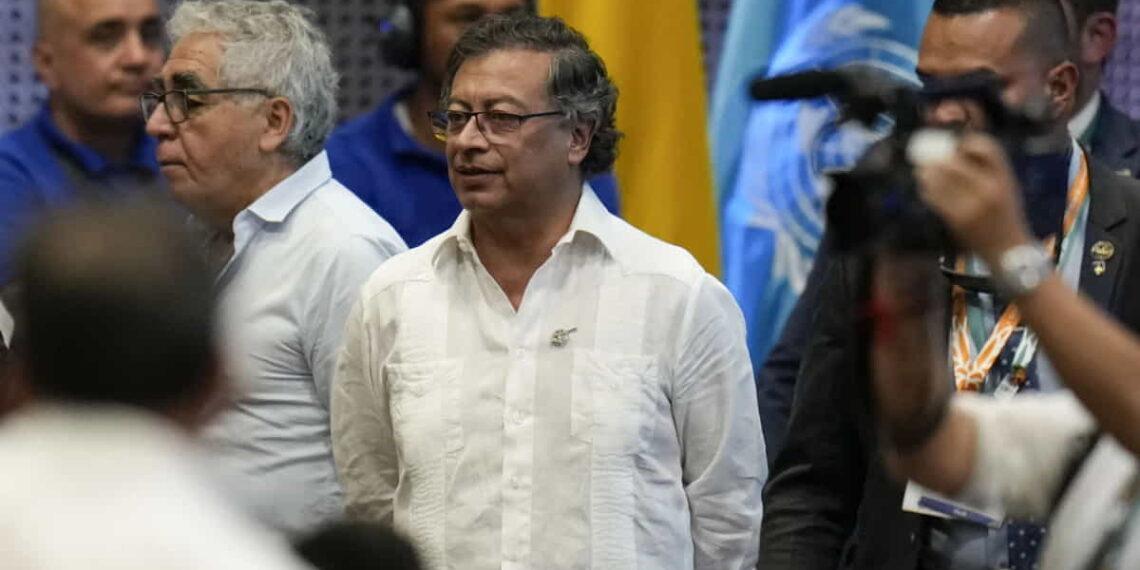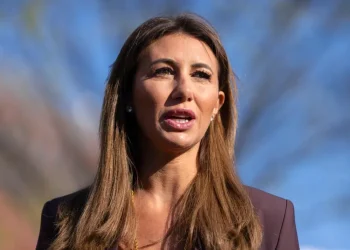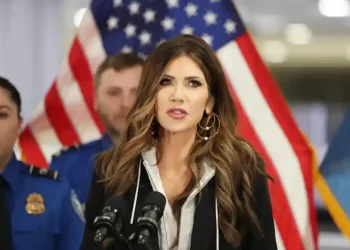US-Colombia Clash Over Migration and Tariffs Highlights Trump’s Tough Immigration Policies
The longstanding partnership between the United States and Colombia took a dramatic turn on Sunday as the two nations clashed over migration deportations and trade tariffs. These escalating tensions are a direct result of the Trump administration’s aggressive stance on limiting illegal immigration, revealing the diplomatic and economic costs for countries that resist compliance.
Key Developments in the US-Colombia Dispute
- Deportation Flights Spark Conflict
- President Donald Trump ordered visa restrictions, 25% tariffs on Colombian imports, and threatened to raise them to 50% within a week. This was in response to Colombian President Gustavo Petro’s decision to reject U.S. military aircraft carrying Colombian deportees.
- Trump argued these measures were necessary to protect U.S. national security, stating on Truth Social:
“These measures are just the beginning. We will not allow the Colombian Government to violate its legal obligations.”
- Colombia’s Retaliation
- Petro responded by announcing a 25% increase in tariffs on U.S. goods. He also stated that Colombia would not accept deported migrants unless the U.S. provided a protocol ensuring their humane treatment.
- Petro shared a video of deportees restrained on a tarmac, saying:
“A migrant is not a criminal and must be treated with the dignity that a human being deserves.”
Strained Diplomatic Ties Between Longtime Allies
- The U.S. and Colombia have historically cooperated closely in the fight against narcotics. However, relations have soured since Petro, Colombia’s first leftist president, took office in 2022 and distanced his administration from the U.S.
- Colombia accepted 124 deportation flights in 2024, making it the fifth-largest recipient of such flights. Petro’s recent actions reflect a growing resistance to these measures.
Trade and Economic Fallout
- Tariffs and Economic Repercussions
- Trump’s tariffs could strain the $1.4 billion U.S.-Colombia trade relationship, with potential harm to U.S. agricultural exports such as corn and farm feed, which reached $733 million last year.
- Colombia is also a critical supplier of crude oil and fresh-cut flowers to the U.S.
- Trade Agreement Challenges
- The two countries have a 20-year-old free trade agreement, which includes dispute resolution mechanisms. It remains unclear whether Trump’s tariffs violate this agreement.
US Expands Deportation Efforts Across Latin America
- Trump’s administration continues to use military resources to enforce immigration policies.
- Recent deportation flights include:
- Guatemala: Two U.S. Air Force C-17 planes landed early Friday.
- Honduras: Two flights carried 193 deportees on the same day.
Political and Social Reactions
- Visa and Travel Restrictions
- Trump announced visa revocations and a travel ban targeting Colombian government officials, allies, and supporters. This includes enhanced customs inspections for all Colombian citizens.
- Petro’s Response
- Petro offered the Colombian presidential aircraft to ensure the deportees return in “dignified conditions.”
- US State Department Action
- In retaliation, the U.S. suspended visa processing at its embassy in Bogotá, citing Petro’s refusal to accept deportation flights.
Immigration Trends and Challenges
- Colombians have become a significant presence at the U.S.-Mexico border, ranking fourth in illegal crossings with 127,604 arrests in the past year.
- Unlike other Latin American countries, Mexico does not require visas for Colombians, making it easier for them to reach the U.S.
Looking Ahead: The Implications
The clash between the U.S. and Colombia underscores the growing strain on international relations caused by Trump’s crackdown on illegal immigration. The escalating tariffs and retaliatory measures could jeopardize trade, while Petro’s defiance signals a broader resistance among Latin American countries.
As Trump pushes forward with his aggressive immigration agenda, the question remains: Will other countries fall in line, or will they join Colombia in resisting U.S. policies?
This article was rewritten by JournosNews.com based on verified reporting from trusted sources. The content has been independently reviewed, fact-checked, and edited for accuracy, neutrality, tone, and global readability in accordance with Google News and AdSense standards.
All opinions, quotes, or statements from contributors, experts, or sourced organizations do not necessarily reflect the views of JournosNews.com. JournosNews.com maintains full editorial independence from any external funders, sponsors, or organizations.
Stay informed with JournosNews.com — your trusted source for verified global reporting and in-depth analysis. Follow us on Google News, BlueSky, and X for real-time updates.














